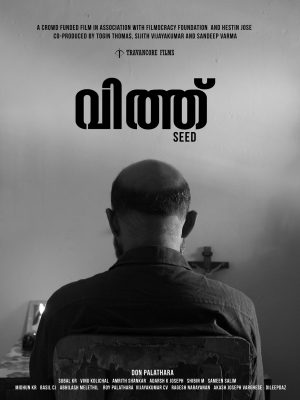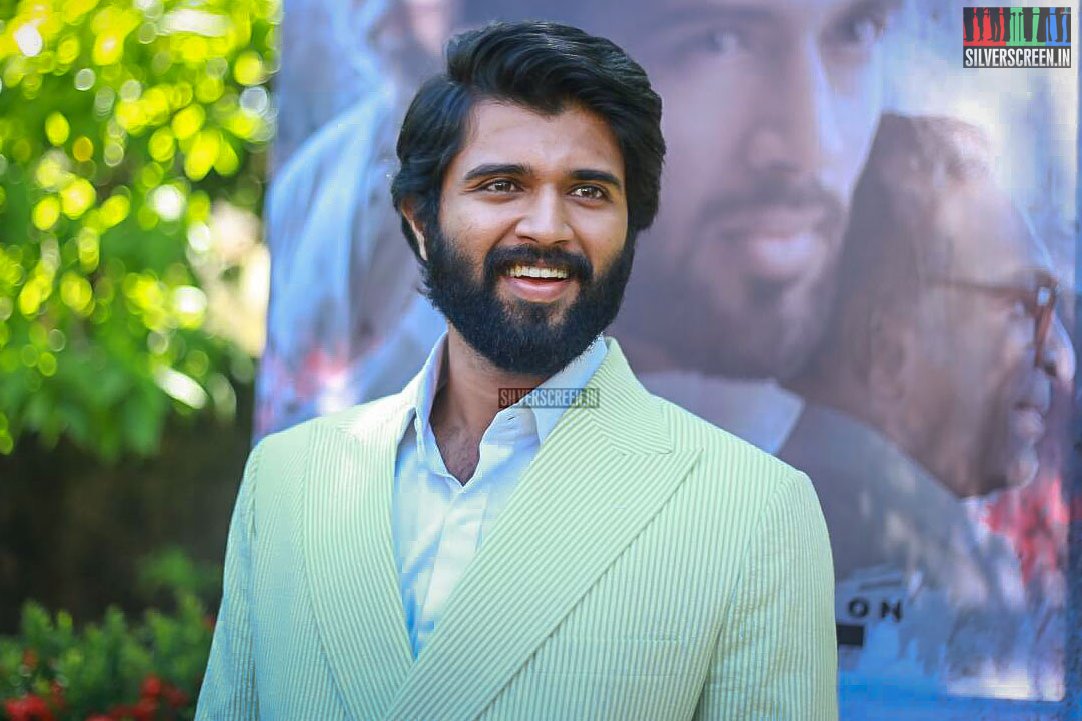If Don Palathara’s directorial debut, Shavam, had a camera that intimately engaged with its subject, it is a distant observer in Vith, his second film that’s still touring film festivals. But, Palathara has a firm belief; it’s quite impossible for a film to communicate with everyone, he says
Life in the countryside is idyllic in Dileesh Pothan’s Maheshinte Prathikaram that unfolds in a photogenic hamlet in Kerala. The protagonist, a photographer by profession, has friends to hang out with, and a lover to flirt with on phone at night. Even the onset of amnesia that has begun to eat into his father’s memory doesn’t look too gloomy in this buoyant film that invests earnest hope in the goodness of people.
Young filmmaker Don Palathara’s Vith (Seed) is a monochromatic antithesis to Maheshinte Prathikaram. The village is a hell-hole where life goes in circles, refusing to move forward. The church in the community isn’t healthy enough to help the youngsters find a sense of freedom and peace. While the older generation manages to bring some order to this ugly monotony, the youngsters slide into a state of frustration, reeling under the weight of their ambitions (or the lack of it) and the rustiness that their rural upbringing imposes on them.
Vith isn’t an easy watch for an audience that is accustomed to fast-paced narratives. Rather than make the audience engage with the film, Don asks them to look beyond the frames. He describes the blandness of life in the village through prolonged shots of a man going about his daily chores like cutting grass, feeding cattle, and cooking meals. The camera watches the protagonist, a middle-aged farmer, patiently as he reads out an entire chapter from the Bible in the opening sequence. He is facing a wall that has a king-size photograph of his late father; flanking the picture is a small image of Jesus Christ. Into his placid world which is watched over by dead ancestors and the divine forces, his young son, a drifter, storms in. The father is unsettled by the young man’s lack of spirits and direction, while the latter spends his days wandering the village lanes. He has lost his job in the city, and is clueless about future. While he deeply despises the place, he is also intimidated by the world outside.
 The most striking quality of Don’s debut directorial Shavam was the way it starkly mirrored reality. The camera, lithely moving through the crowd at a funeral, sometimes hovered over people having the most candid conversations, and caught them in their vulnerable moments. In Vith, shot by Subal KR, the camera is static for the most part, watching people from a distance. The actors are natural performers, perfectly in sync with the setting. But the seemingly meaningless long takes ensure that the audience experience the listlessness that the characters suffer from. Time is nearly a dead element in the film, and nature, a passive onlooker rather than an active character, quite unlike the films of Hungarian master Bela Tarr and Turkish filmmaker Nuri Bilge Ceylan, whom Don cites as his inspiration.
The most striking quality of Don’s debut directorial Shavam was the way it starkly mirrored reality. The camera, lithely moving through the crowd at a funeral, sometimes hovered over people having the most candid conversations, and caught them in their vulnerable moments. In Vith, shot by Subal KR, the camera is static for the most part, watching people from a distance. The actors are natural performers, perfectly in sync with the setting. But the seemingly meaningless long takes ensure that the audience experience the listlessness that the characters suffer from. Time is nearly a dead element in the film, and nature, a passive onlooker rather than an active character, quite unlike the films of Hungarian master Bela Tarr and Turkish filmmaker Nuri Bilge Ceylan, whom Don cites as his inspiration.
“Since the film was about the contrast between two characters, I wanted to shoot it in various shades of grey,” says Don about his decision to shoot the film in monochrome. He completed the film on a shoe-string budget of approximately Rs 7 Lakh that he pooled on a crowd-funding platform, with the support of Filmocracy, a non-governmental platform that supports indie filmmakers. Don followed a guerrilla style of filmmaking, using locations that were readily available to him rather than finding new ones. Theater artiste Jain Syriac Babu played the role of the son, while Pradeep Kumar, who was part of the cast of Shavam and Sanal Kumar Sasidharan’s acclaimed Ozhivu Divasathe Kali, played the father.
Recommended
“I believe that films are not supposed to communicate with everyone,” says Don, about the unconventional film-making style he has chosen. “I was aware of the pace-related criticism the film would receive even while I was writing it. In this film, I wanted to explore the aspect of time as a medium of communication.”
Don ventured into indie cinema after completing a course from International Film School in Sydney. His first project was a documentary on Cinema Vandi, the travel cinema of Kazhcha Film Society. He made Shavam in 2015, on a shoe-string budget of Rs 7 Lakh. It was later acquired by Netflix.
Vith, which is still doing its film festival circuit, was screened at Kazhcha Indie Film Festival, Independent & Experimental Film Festival Of Kerala, Malabar International Film Festival, and International Film Festival Of Thrissur. Don hopes to get the film released on an online streaming platform.
*****



